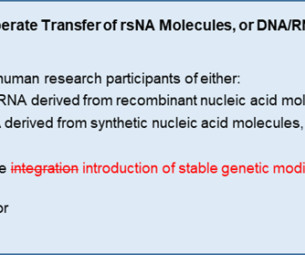Risk Assessment for use of Engineered Genetic Materials in Clinical Research
Advarra
MARCH 31, 2023
This trend came to the forefront during the COVID-19 pandemic, as the three most popular vaccines developed in response to the coronavirus contained engineered genetic materials in the form of mRNA or a genetically engineered virus. Why Does the IBC Need to do a Risk Assessment?













Let's personalize your content